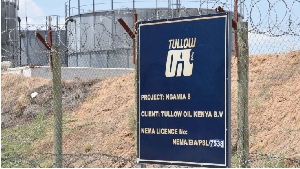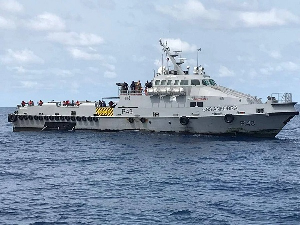British oil explorer Tullow has written off $17.9 million (Sh2.41 billion) worth of its Kenyan assets on the uncertainty over their sale to a strategic investor and commercial exploitation of the Turkana oil deposits.
Tullow, whose field development plan (FDP) for the Lokichar project is under evaluation by the government, said that the book value of its Kenya holdings was revised downwards from $260.1 million (Sh35 billion) in December 2022 to $242.2 million (Sh32.6 billion) at the end of 2023.
The company said that there were uncertainties over its ability to realize the value— hence the impairment — primarily relating to receiving and finalising an acceptable offer from a strategic investor, obtaining financing for the Turkana project and getting the government to deliver on the required infrastructure and fiscal terms to make the project viable.
The impairment is the first the company has done since 2020 and reflects an increasingly pessimistic position on the ability of the Turkana project to proceed to commercial production. The company would require a satisfactory resolution of the issues raised before taking a final investment decision on the project, and is in the meantime proceeding with efforts to sell its stake to a new investor.
"Certain risks have increased since 31 December 2022, predominantly around farm-down and project financing. This has been partially offset by an increased equity interest in the project and changes in oil price assumptions,” said Tullow in its results for the year ended December 31, 2023.
“Based on this, the net present value [book value] has been revised to $242.2 million and an impairment of $17.9 million has been recognised as at 31 December 2023.”
Tullow’s expectation is that if the uncertainties are resolved, it will be able to write back all the impairments, which include a sum of $410 million written off in 2020. On the other hand, if they are not resolved, the company would be forced to write off the entire $242.2 million book value.
The company’s ability to unlock the value in the operation largely hinges on the approval of its field development plan, whose evaluation period was extended to June 2024 from the previous end of March date.
The field plan outlines how an oil company intends to develop a petroleum field, manage the impact on the environment and society, as well as give forecasts for production and costs. Tullow’s field development plan was initially submitted to the government in December 2021 but was later revised to make it economically viable at lower global crude oil prices.
The revised field development plan followed an audit that revealed their commercially recoverable oil reserves in Turkana are at least 14 percent larger than previously estimated. It raised the production capacity of the oilfields to 120,000 barrels of oil per day (bopd), up from previous estimates of 70,000 bopd.
In June 2023, Tullow also took up the sole ownership of the Turkana operation following the exit of its joint venture partners Africa Oil Corporation and TotalEnergies in the previous month, quoting differing internal strategic objectives as reasons.
The two firms held a 25 percent stake each in the project that comprises blocks 10BA, 10BB, and 13T in South Lokichar in Turkana, while Tullow held a 50 percent stake.
The sole ownership gives Tullow a more flexible proposition for a strategic partnership but also means that the company is now liable for all costs incurred going forward, except those that TotalEnergies and Africa Oil remain liable for.
Africa News of Tuesday, 19 March 2024
Source: theeastafrican.co.ke













